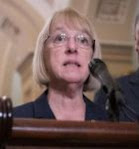Friday, April 25, 2014
Free today?
Today, you are free! At least it's "Tax Freedom Day," which arrives in Washington state later than in 41 other states.
If all of our state's economic output, from January 1 until today, was directed to paying local, state, and federal taxes, it would take until today-April 25-to pay that bill. To put it another way, nearly a third of what we produce goes to government. And that's just in the form of taxes, not counting fees and debt.
Tax Freedom Day arrived in Oregon five days ago; in Idaho it was April 11. Washington can do better, if we wrench back control of government from public-sector unions. Those private special interests fight tooth and nail to grow government, imposing an ever-greater burden on everybody else.
Want proof? Tax Freedom Day for states that don't allow union monopolies would be on April 14, meaning the average tax burden in those states is significantly less than here. We can do better. As you help us expose monopoly unions and how they rig our political system, you are part of the solution.
If all of our state's economic output, from January 1 until today, was directed to paying local, state, and federal taxes, it would take until today-April 25-to pay that bill. To put it another way, nearly a third of what we produce goes to government. And that's just in the form of taxes, not counting fees and debt.
Tax Freedom Day arrived in Oregon five days ago; in Idaho it was April 11. Washington can do better, if we wrench back control of government from public-sector unions. Those private special interests fight tooth and nail to grow government, imposing an ever-greater burden on everybody else.
Want proof? Tax Freedom Day for states that don't allow union monopolies would be on April 14, meaning the average tax burden in those states is significantly less than here. We can do better. As you help us expose monopoly unions and how they rig our political system, you are part of the solution.
Thursday, April 17, 2014
Cary Condotta's Olympia report
The Legislature adjourned the 60-day, 2014
legislative session on time, Thursday, March 13. This means for the
first time since 2009 there will be no special session. You will recall,
last year we had three special sessions and lawmakers were in Olympia
until the end of June. Below is a brief overview of successes and
disappointments of the legislative session.
Supplemental operating budget
The supplemental state operating budget
passed by the Legislature this year had some very positive pieces to
it. However, I opposed the budget this session because it left out some
tax incentives important to our region. If you recall, in November,
legislators were rushed back to Olympia and in a whirlwind special
session we were asked to vote on tax incentive legislation to keep
Boeing jobs in the Puget Sound region. Some legislators from Eastern
Washington reminded all legislators during the debate to remember this
during the upcoming session so we can do more to help the rest of our
state improve job creation and strengthen the economy.
Unfortunately,
there were tax incentive bills for a variety of issues, including
extending the tax incentive legislation to construct data centers, that
would have helped accomplish this, but the proposals were not included
in the final budget. The governor and House Democrats continually talk
about “one Washington” but that doesn’t seem to extend outside the I-5
corridor. The latest unemployment numbers recently came out. King County
has the lowest rate at 5.2 percent while the counties in the 12th
District are:
- Chelan: 8.8 percent
- Douglas: 9.0 percent
- Okanogan: 10.9 percent
- Grant: 11.5 percent
Prime-sponsored legislation
I had a number of bills receive public hearings and pass thru committees that brought attention to a variety of issues. We made significant progress on major issues for our district. These include defining independent contractors, property taxes and other bills related to local wineries and small business. We completed work on two of these important bills this session.
My bill to give county treasurers more flexibility in accepting property tax payments has been signed by the governor. I introduced House Bill 2309 because of the number of people I was hearing from about the lack of flexibility of trying to pay their property taxes during difficult times. A fellow legislator out of Spokane informed me his county treasurer, Rob Chase, had similar concerns. We worked on drafting the legislation and I was able to get it through the legislative process. This legislation may benefit people who lose their jobs, have health crises, live on retirement income or work seasonal jobs.
House Bill 2146 passed the Legislature unanimously and awaits the governor’s signature. It modifies the appeal bond amount for appeals of penalties to the Department of Labor and Industries (L&I). Unless you deal with this agency on a regular basis this may not mean a great deal to you, but it is a great example of the dysfunction we periodically encounter in our agencies. I became aware that to appeal a $150 penalty with the department you had to pay a $200 appeal bond. With small penalty levels and a high appeal cost, people obviously did not appeal. This will give people more reasonable access to appeal without encouraging frivolous appeals. This will change the appeal amount to 10 percent of the penalty amount, or $200, whichever is less, subject to a $100 minimum.
Session successes
House Bill 2789 is known as the “drone bill.” Given the National Security Agency (NSA) recording phone calls and e-mails, this bill quickly became very important this session. It places privacy protections around the use of unmanned surveillance aircraft by state agencies. It protects our privacy and constitutional rights as citizens. We are one of the first in the nation to pass such legislation. It still allows law enforcement to use surveillance aircraft in certain situations, such as search and rescue missions and emergencies. However, it will not allow agencies to observe your house or farm from the air without a warrant.
House Bill 2192 will promote economic development by improving the predictability and efficiency of state agency permit decisions. This legislation is a good transparency measure making information about permitting assistance and timelines more readily available to the public.
House Bills 2261 and 2262 require the Washington Department of Fish and Wildlife (WDFW) and the Department of Ecology (DOE) to “show their work” by categorizing on their websites the sources of scientific information relied upon in support of significant agency actions. This makes state agencies accountable for their actions and making their decision-making process more transparent.
House Bill 2207 provides that certain school districts which receive federal forest revenue will no longer have their state funding allocation reduced by the amount of federal forest revenue received.
Session disappointments
As I mentioned earlier, after the Legislature provided Boeing the tax incentives they wanted, nothing was done this session for the rest of the state. We had legislation to:
- re-enact the Rural County Tax Incentive Program (that would have helped up to 31 counties);
- extend the tax incentive for data centers constructed in our state; and
- extend the same tax incentives Boeing received to rotorcraft (i.e. helicopters) because a company wanted to build helicopters in Southwest Washington.
Other disappointments include:
- The lack of meaningful transportation reforms to ensure gas tax dollars are maximized and WSDOT is held accountable (Bertha shutdown, faulty 520 Bridge pontoons – including cost overruns, waste in the ferry system); and
- Nothing to help people who have been negatively impacted by Obamacare (290,000 cancellation notices).
I was recently appointed as the ranking Republican on the House Government Oversight and Accountability Committee (GOA). This committee works on legislation related to alcohol, gambling and now overseeing the implementation of the legalization of marijuana initiative (I-502).
The citizens of Washington passed the initiative and the Legislature is trying to provide regulations and oversight to make it work. It has proven to be a very difficult task since no other state has done this before. Even Colorado is operating off a very different model than our voters approved. The challenge for me is to ensure local money is included in any implementation plan. Many cities and counties are struggling, including right here in our 12th District.
Local governments are concerned about oversight on marijuana grows and businesses in their localities when no funding has been designated for them in the initiative. Many have considered bans or moratoriums rather than risk increased costs dealing with zoning, planning and enforcement.
Unfortunately, we were unable to reach an agreement before the session adjourned. Senate Bill 5887 would have integrated the medical and recreational marijuana systems, and made several changes related to the possession, growing and purchasing of medical marijuana as well as provide local governments with some of the tax money generated from the I-502 implementation.
We worked on this issue up until the last hour, including a one-on-one meeting with Gov. Jay Inslee. All the stakeholders agreed to keep working to ensure local governments a share in this program.
Subscribe to:
Posts (Atom)
What other people read on this blog
-
When COVID hit, we treated it like the public health emergency it was. But this public health disaster? Business as usual. It's a scan...
-
The epidemic of drug use is killing Seattle residents & depriving the public of spaces intended to be safe for everyone. We won’t give u...
-
by Jason Hagey, October 23, 2010 The basic idea behind Initiative 1053 - to require a two-thirds vote of the Legislature to raise taxes - i...
-
Civilian safety depends on sufficient police capability. Too bad Seattle is stripping itself of defense as the people are losing the right...
-
In a television advertisement, Bill Gates Sr. came out in favor of Initiative 1098 -- the income tax initiative. Mr Gates is not as wealthy...
Effing the ineffable - Washington State elections sometimes have been rigged.
“It is enough that the people know there was an election. The people who cast the votes decide nothing. The people who count the votes decide everything.”
-- Joseph Stalin




